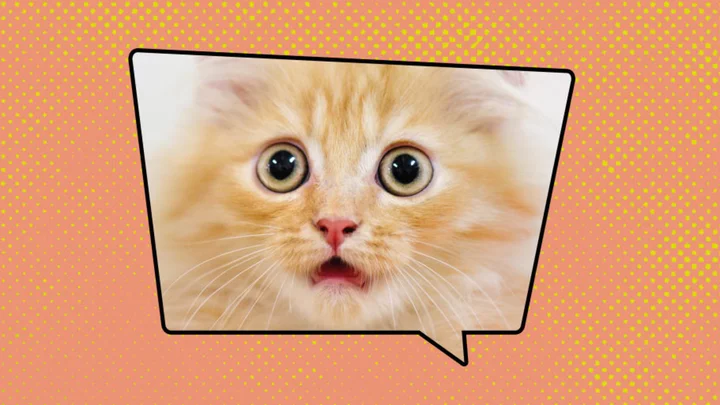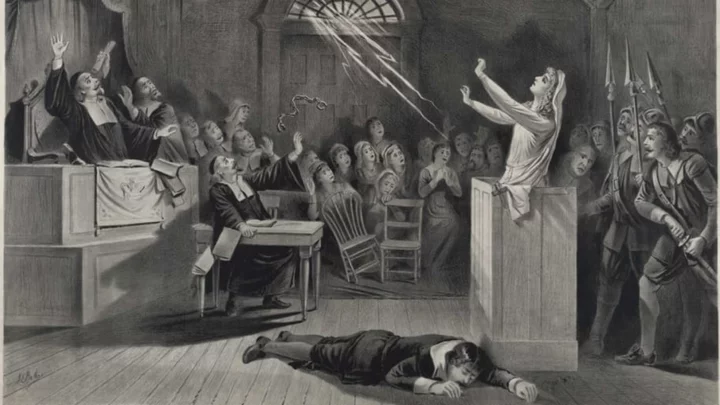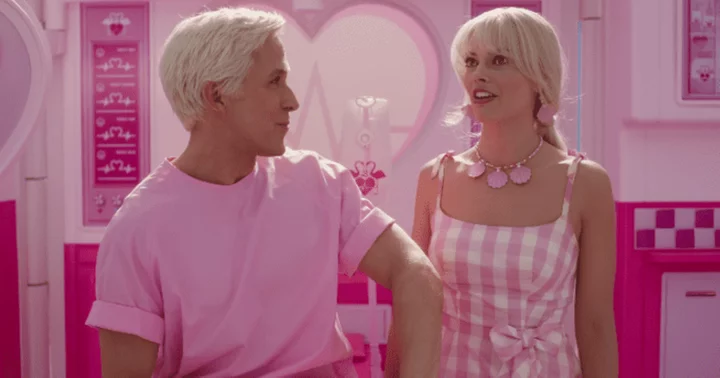Sometimes words move up in the world. Their meanings change with time, becoming more positive—a process linguists call amelioration. Here are some ameliorated words that were a pinch more negative back in the day.
1. Amaze
In the 16th century, amaze was a verb defined as “to bewilder”; it could also mean “to terrify.” (It’s formed using the word maze, which dates back to the 14th century and meant “confusion.”) Not long after, though, amaze also came to mean “to surprise” or “to astound,” the meaning it still holds today.
2. Amuse
From the 1400s up through the eighteenth century, to amuse meant “to cheat.” A somewhat early citation of the word’s current meaning can be found in a 1796 book from Mary Wollstonecraft: “Marguerite … was much amused by the costume of the [Danish] women.”
3. and 4. Awe and Awesome
The first meaning of awe was “fear,” and eventually, the word came to define that feeling mixed with religious reverence—so when the suffix -some was added in the 1570s to give us awesome, it wasn’t used to refer to things that are super cool, as it is today. Instead, it meant “inspiring fear.”
5. Boy
As far back as the 1200s, boy was used to refer to a male servant or enslaved person. The word’s origins, and how it developed this meaning, are a mystery. (Fun fact: Girl, when it first appeared in the 1300s, was a genderless term for a child.)
6. Careful
In the 1200s, careful, from the Old English word carful, was an adjective used to express sadness and sorrow.
7. Dizzy
Today, when you’re dizzy, you’re giddy or literally off-balance—but as far back as the 800s, the word was used to refer to people who were foolish.
8. Eager
In the 1300s, one possible meaning of the word eager was a person who felt or acted angry. It came into English from the French aigre, which since the 12th century has meant “sour.”
9. Fond
These days, if you’re fond of something, you like it. But to be fond in the late 1300s meant something very different—you were foolish. The etymology of the word is unclear, but it may have its origins in the word fon, a noun for a foolish person as well as a verb that meant “to fool.”
10. Fun
Fun—which might also have its origins in the verb fon—originally meant “to cheat or trick.” Now it’s all about having a good time or indulging in a joke, occasionally at someone else’s expense.
11. Glorious
If someone called you glorious in the late 1300s, it wasn’t a compliment: The word was used in reference to someone who was prone to boasting or otherwise being kind of a jerk. (In the 1700s and 1800s it could also be used to refer to a happy drunk.)
12. Knight
Way back in the late 800s, knight—which comes from the Old English word cniht—was another word for a boy, and around 950, it began to be used to refer to any male servant. It came to the military meaning we know today in the 1100s.
13. Meticulous
Meticulous, which comes to us via Latin and French, originally meant “fearful” or “timid” when it was coined in the 1540s. In the 1820s, it came to mean being a little too careful regarding details, in a bad way. Eventually, however, being meticulous became a positive thing.
14. Mischievous
Originally, in the late 1300s, mischievous (from the French meschevous) was used in reference to disastrous events or people who were miserable. It wouldn’t come to be used for someone who was charmingly naughty until the mid-1700s (and it meant actual, not-at-all-charming bad behavior earlier than that—from around 1438 onward).
15. Nice
In the 1300s, calling someone nice meant you were saying they were foolish or simple. The word came into English from the Old French nice, or “ignorant,” from the Latin nescius.
16. Pragmatic
Pragmatic comes to English from Latin and French, and way back in the 1600s, it was a word that meant “meddling.”As William Strachey noted in 1612’s The historie of travell into Virginia Britania, “Ignorance … cannot … excuse a factious and pragmatique Tonge.”
17. Sophisticated
The verb sophisticate means “to adulterate one substance with another,” so in the 1600s, something sophisticated was likewise unpure—it was often used to refer to foods or booze that had been tampered with. Its current meaning dates back to 1895.
18. Pretty
These days, we use pretty to talk about something that’s attractive, but in the 1450s, to be pretty was to be cunning. It was formed by combining the very old word prat (a joke or trick) with the suffix -y.
19. Sustainable
Today, the word sustainable is often used in terms of how to maintain things like natural resources (like energy) or activities (such as farming practices), a meaning that dates back to the mid-1970s. But long before that, in the 1610s, sustainable was used to refer to something that was, in the words of Randle Cotgrave in 1611’s A dictionarie of the French and English tongues, “abideable.”
A version of this story ran in 2013; it has been updated for 2023.
Are you a logophile? Do you want to learn unusual words and old-timey slang to make conversation more interesting, or discover fascinating tidbits about the origins of everyday phrases? Then get our new book, The Curious Compendium of Wonderful Words: A Miscellany of Obscure Terms, Bizarre Phrases, & Surprising Etymologies, out now! You can pick up your copy on Amazon, Barnes & Noble, Books-A-Million, or Bookshop.org.
This article was originally published on www.mentalfloss.com as 19 Words That Used to Mean Something Negative.









